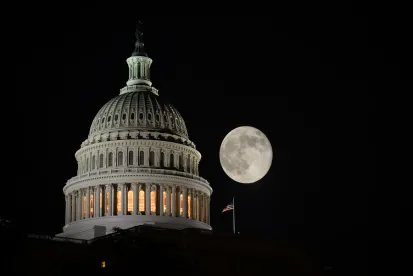Legislative Relief Package Stalls.
The Buzz recently predicted that negotiations over a fourth COVID-19 legislative relief package would be like an immovable object facing an unstoppable force. Unfortunately, it appears that this prediction is coming true, as our elected officials in Washington, D.C. don’t appear to be any closer to a deal than they were several months ago. As a result, President Donald Trump announced that he is preparing executive orders concerning a payroll tax cut, unemployment insurance, and eviction protections. Only time will tell whether these executive orders come to fruition or are merely a tactic to end the stalemate in Congress.
FFCRA Rule Partially Invalidated.
Several key provisions of the U.S. Department of Labor’s (DOL) Families First Coronavirus Response Act’s implementing regulations were struck down this week by the United States District Court for the Southern District of New York. Erik D. Mass and Burt D. Garland, Jr. have all the details about which provisions were struck down and what this all means for employers. Unfortunately, at this point, major questions about the decision—such as its applicable scope and whether the DOL will appeal—remain going forward.
Another Immigration EO.
On August 3, 2020, President Donald Trump issued an executive order (EO) titled “Executive Order on Aligning Federal Contracting and Hiring Practices With the Interests of American Workers.” Following on the heels of the April and June 2020 proclamations, the EO requires executive branch agencies to conduct review of the use of temporary foreign workers by federal contractors. While the EO does not create any new obligation for federal contractors themselves, it does further direct the DOL and the U.S. Department of Homeland Security (DHS) to take action within 45 days “to protect United States workers from any adverse effects on wages and working conditions caused by the employment of H-1B visa holders at job sites (including third-party job sites).” What this action might look like, and its potential impact on government contractors, is not known at this point.
More Immigration News.
In addition to the federal contractor EO, there were some other immigration policy developments this week.
-
First, the DHS issued a final rule that increases immigration fees that U.S. Citizenship and Immigration Services imposes by an average of 20 percent. Andrea C. Davis has more.
-
Second, despite the efforts of a bipartisan group of senators, the Fairness for High-Skilled Immigrants Act of 2019 failed to pass via a unanimous consent motion in the U.S. Senate this week. The bill, which overwhelmingly passed the U.S. House of Representatives in July 2019, would eliminate the per-country caps for employment-based immigrants.
NLRB Members Confirmed.
Late last week, the U.S. Senate confirmed Marvin E. Kaplan and Lauren McFerran to the National Labor Relations Board (NLRB). Of course, Kaplan is already a member of the Board, so his confirmation means that there won’t be any gap between his new term and the expiration of his current term at the end of August 2020. McFerran rejoins the Board as its sole Democrat after her term expired in December 2019. Kaplan joins Member William J. Emanuel and Chair John F. Ring in the Republican majority. The remaining fifth seat is likely to go unfilled for the time being.
OFCCP Audit News.
The Office of Federal Contract Compliance Programs (OFCCP) announced this week that it will be starting Vietnam Era Veterans’ Readjustment Assistance Act (VEVRAA) focused reviews. To assist federal contractors, OFCCP has created a VEVRAA focused review website that contains frequently asked questions and best practices. Christopher J. Near has the details.
Pork Barrel Legislation.
It certainly isn’t rare for Congress to stew over legislation covering aspects of the meat processing industry. But the Processing Revival and Intrastate Meat Exemption (PRIME) Act—introduced in 2019—is a bill that adds some sizzle to these debates, and is especially timely given the way the industry has been impacted by the current health pandemic. This is because the bill lifts certain restrictions that prohibit small-size slaughterhouses from selling directly to grocery stores, restaurants, and the like. The bill only has eight cosponsors in the Senate, but perhaps those sponsors can grill their colleagues and cut through some of the political gristle to move the bill. Of course, the lead sponsor of the PRIME Act in the Senate is




 />i
/>i

